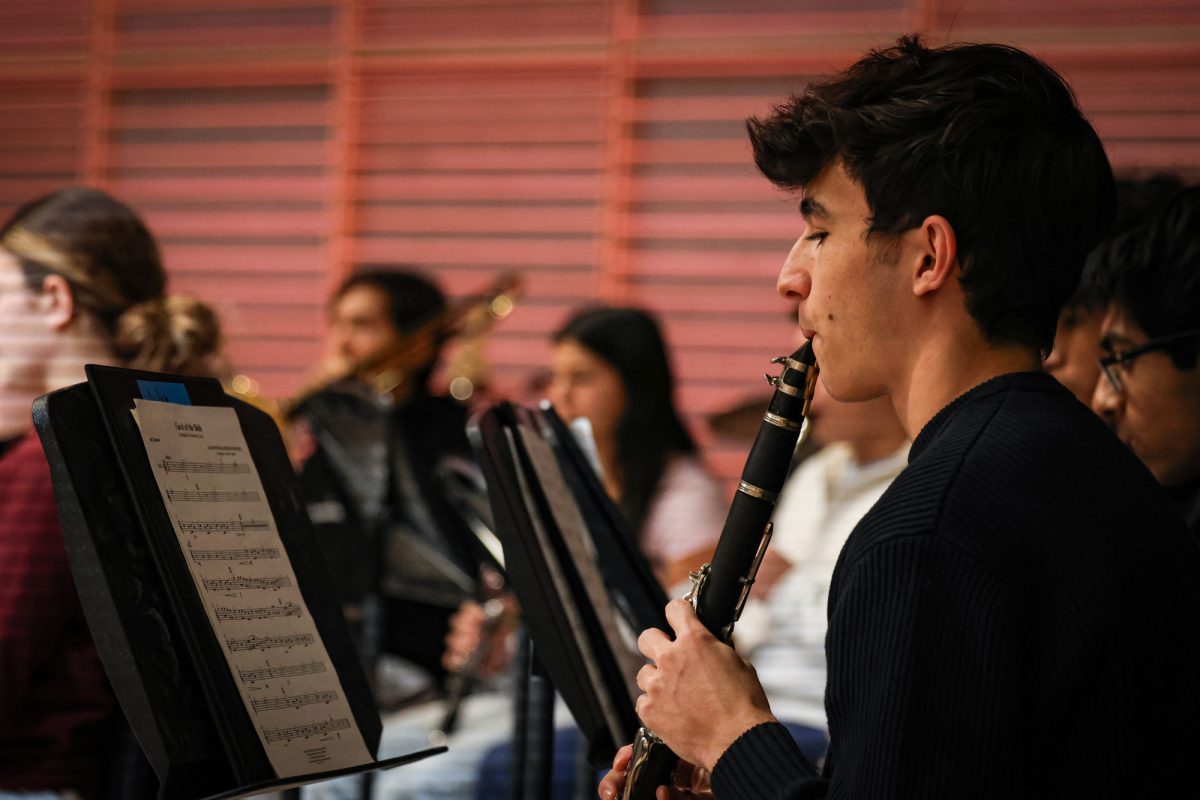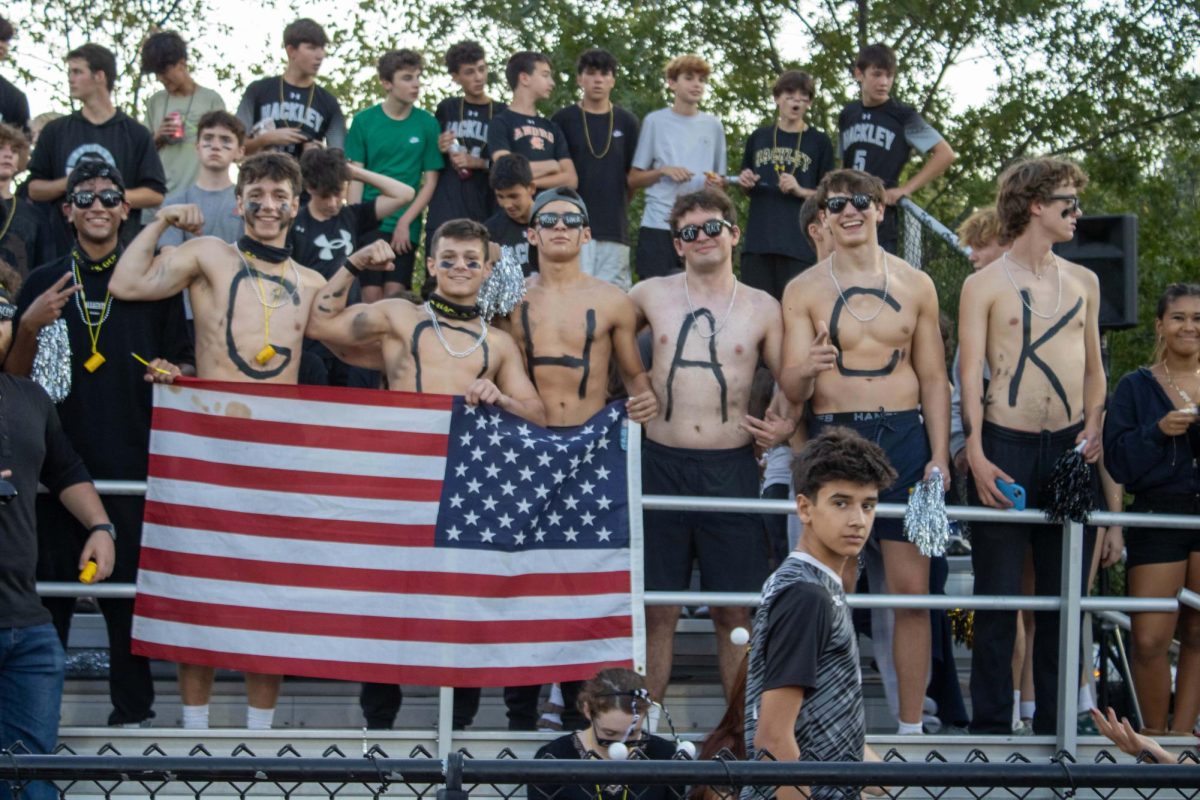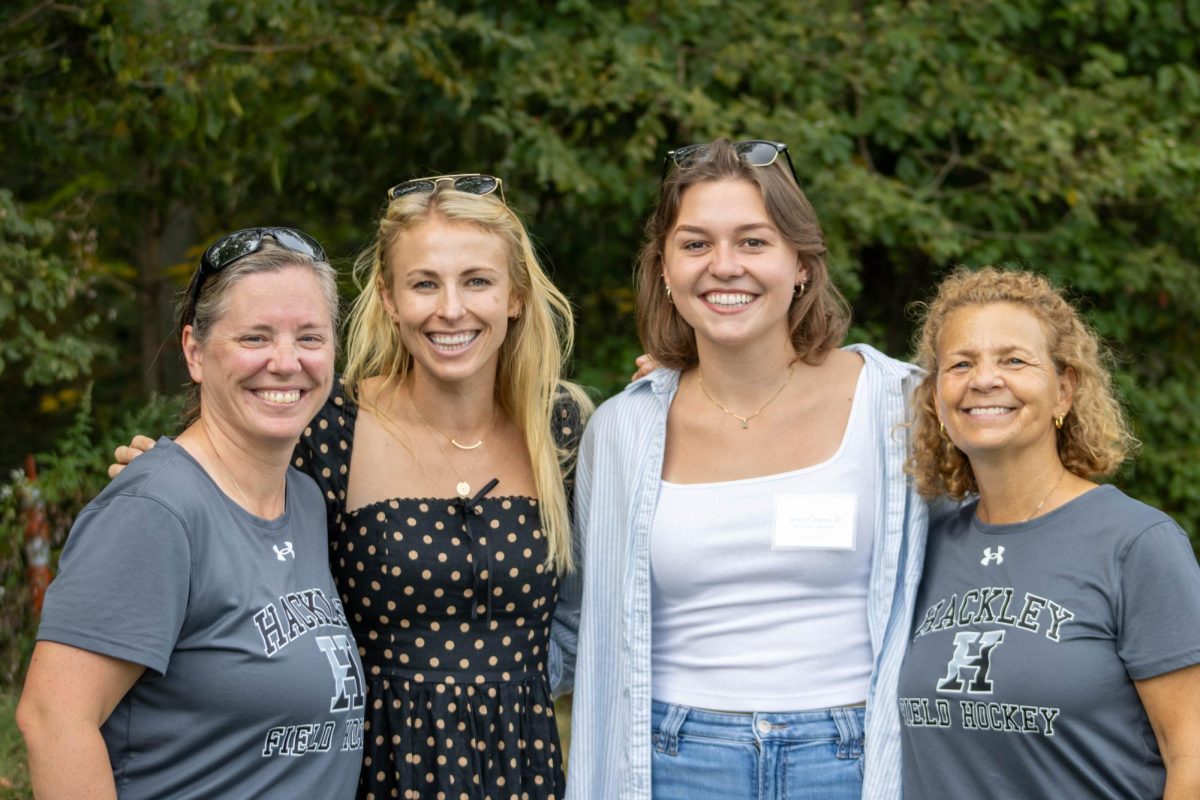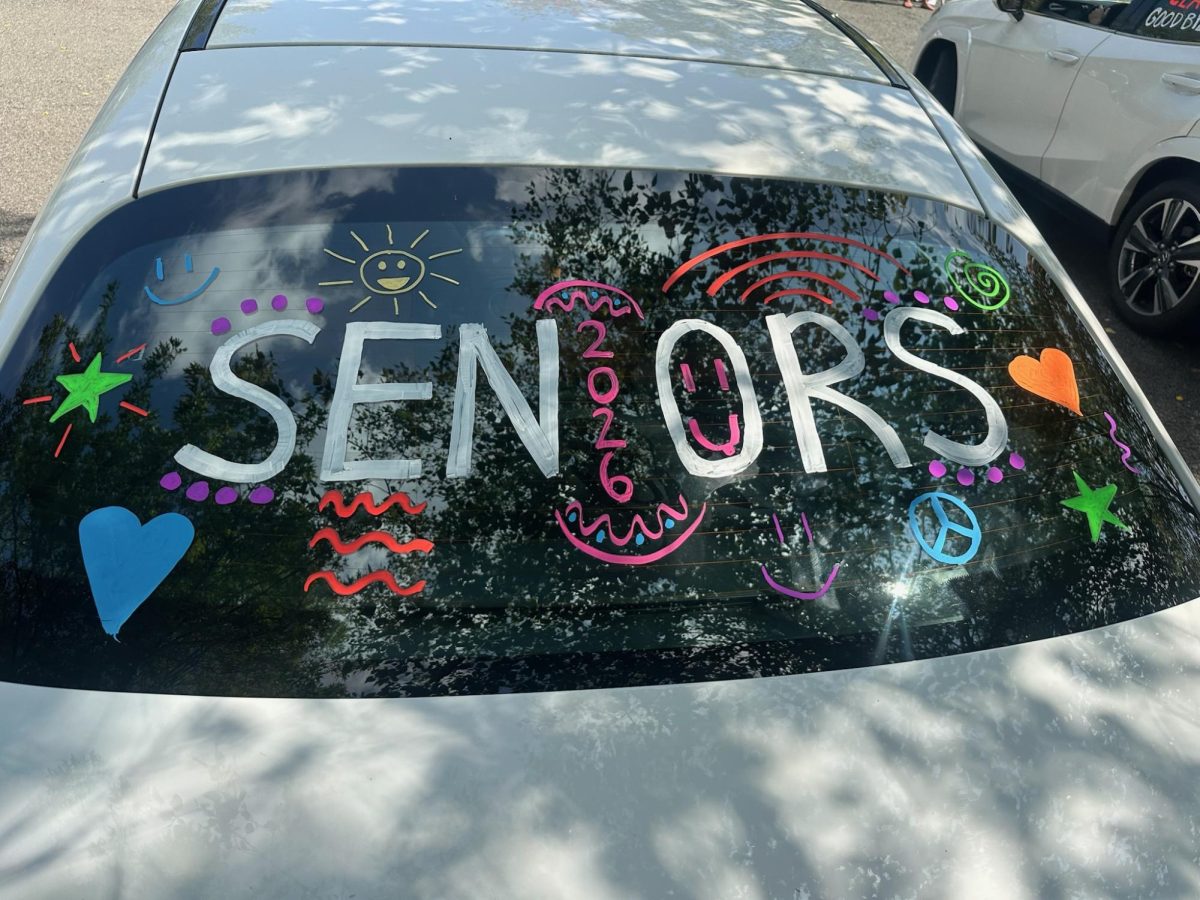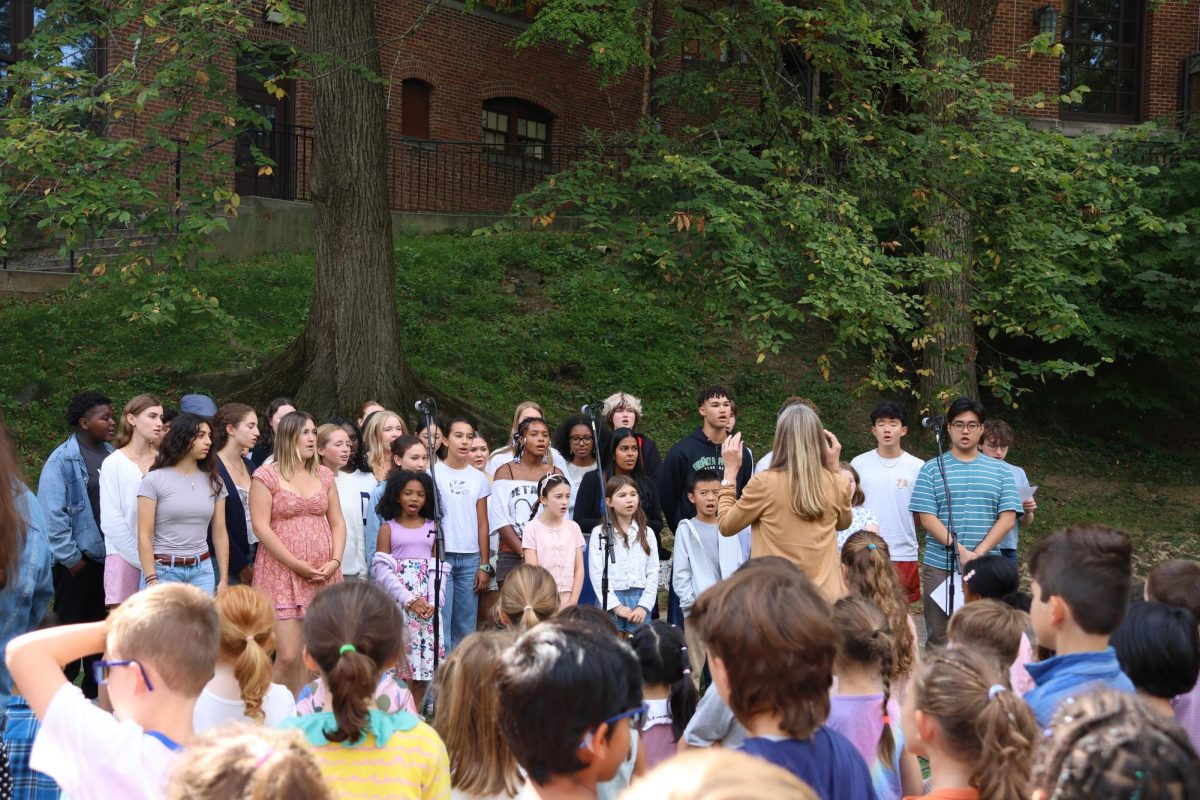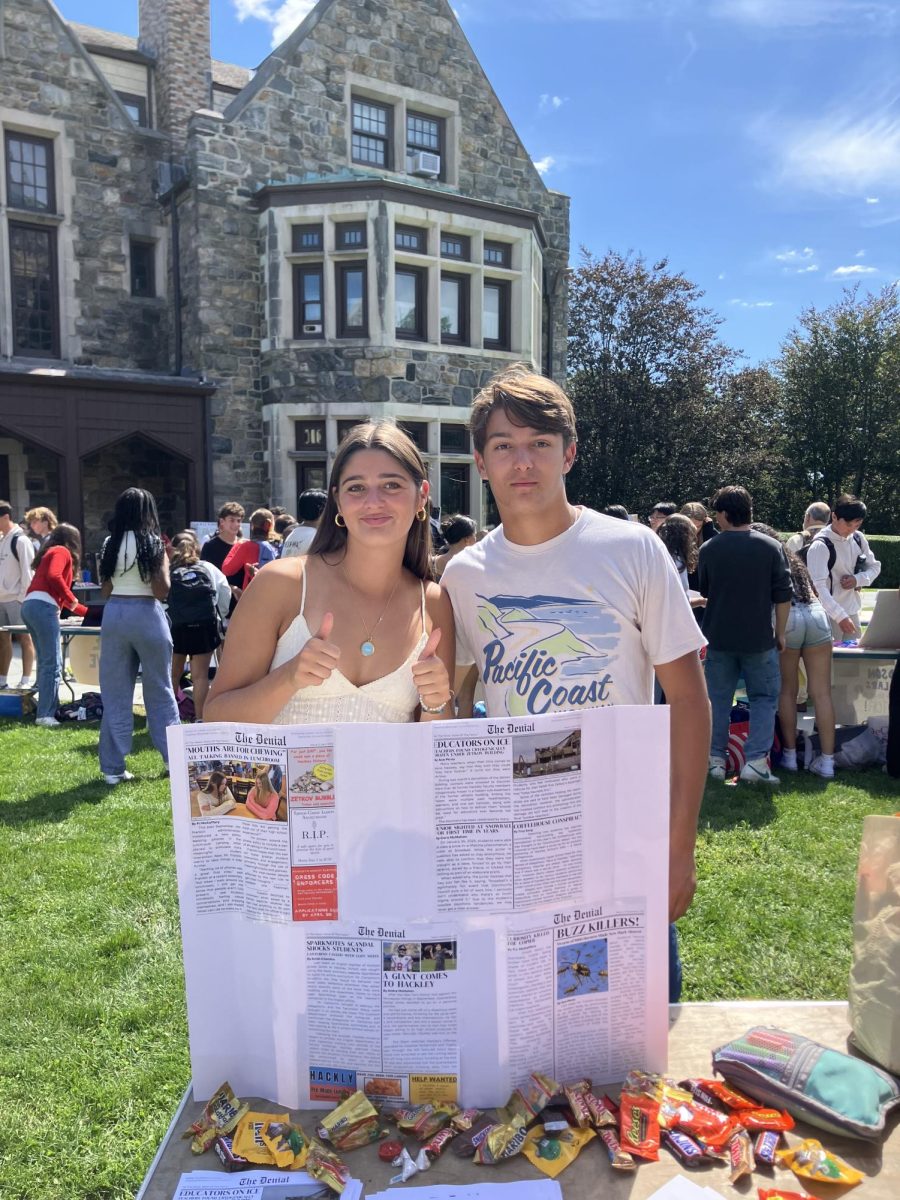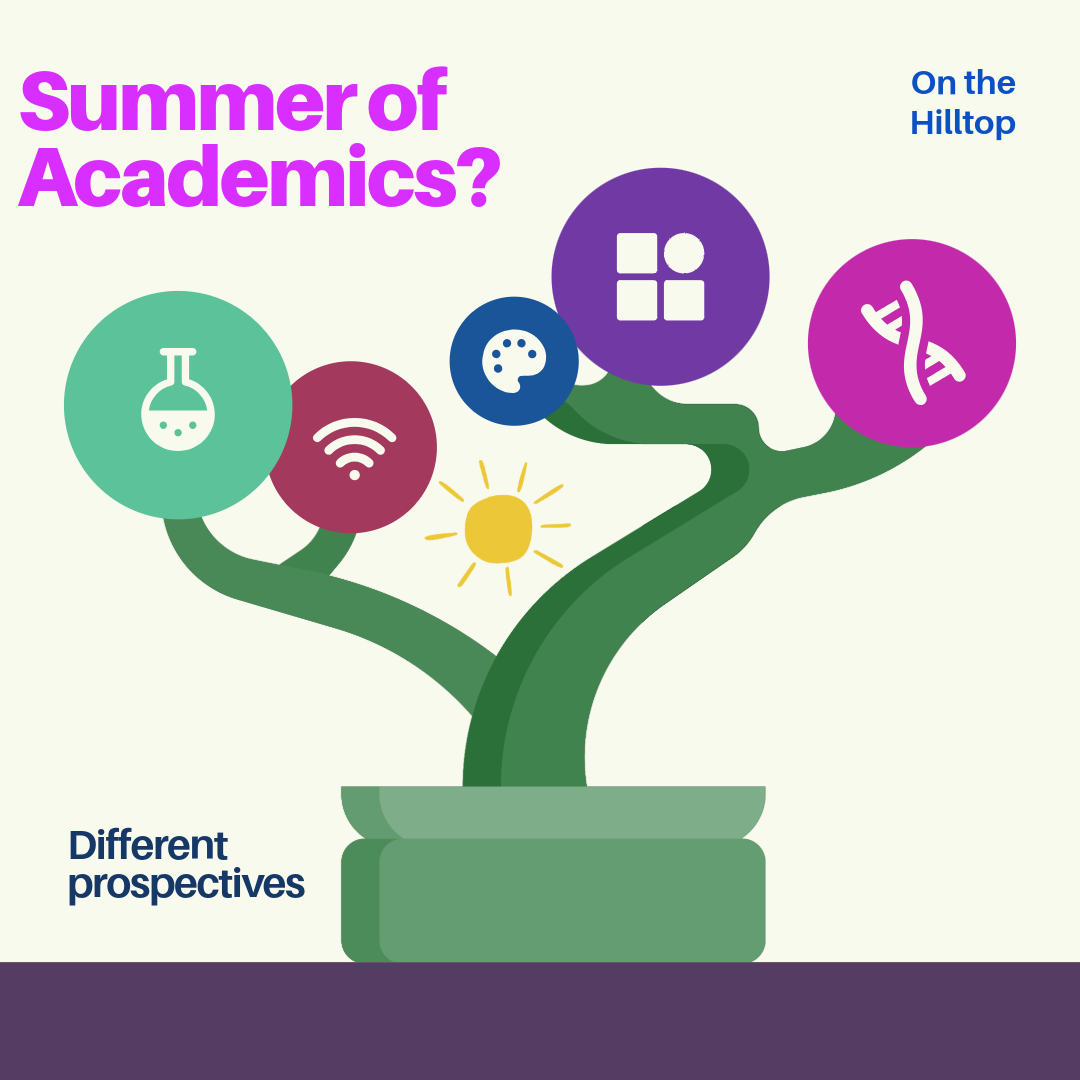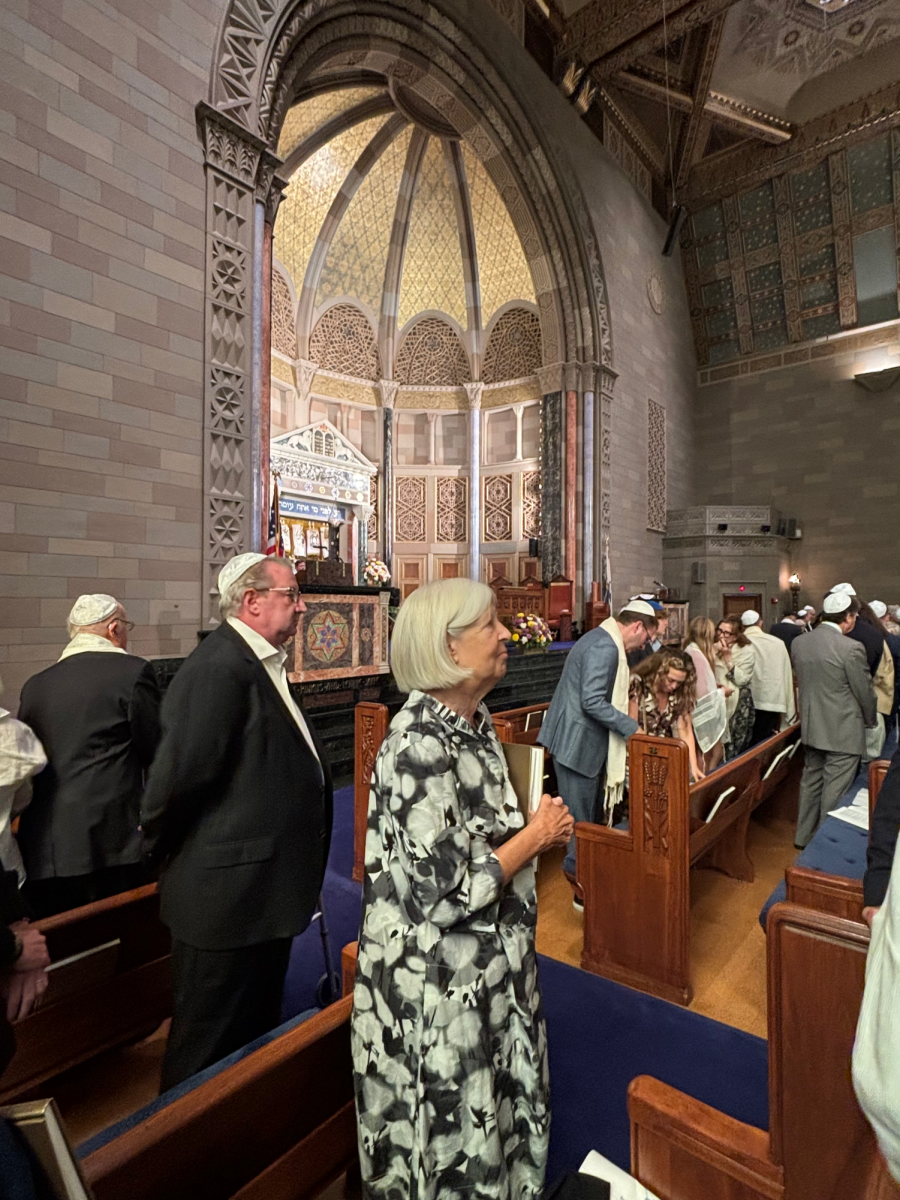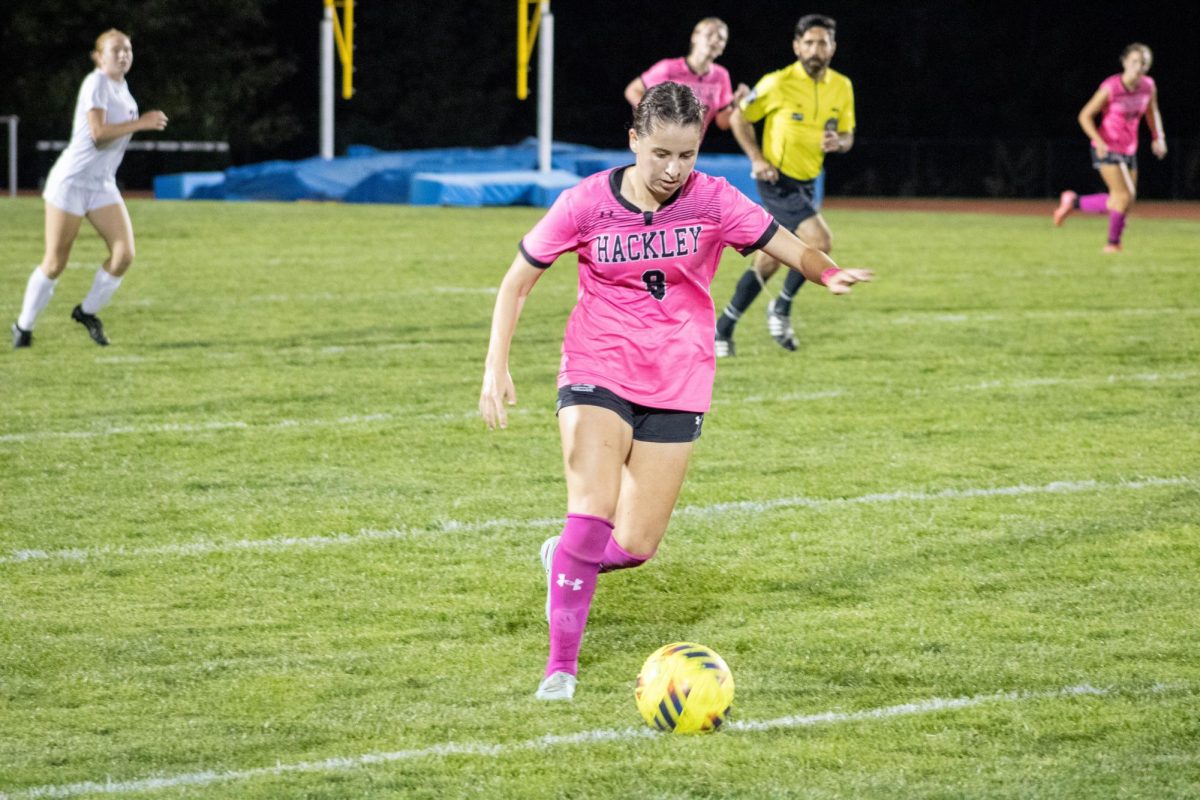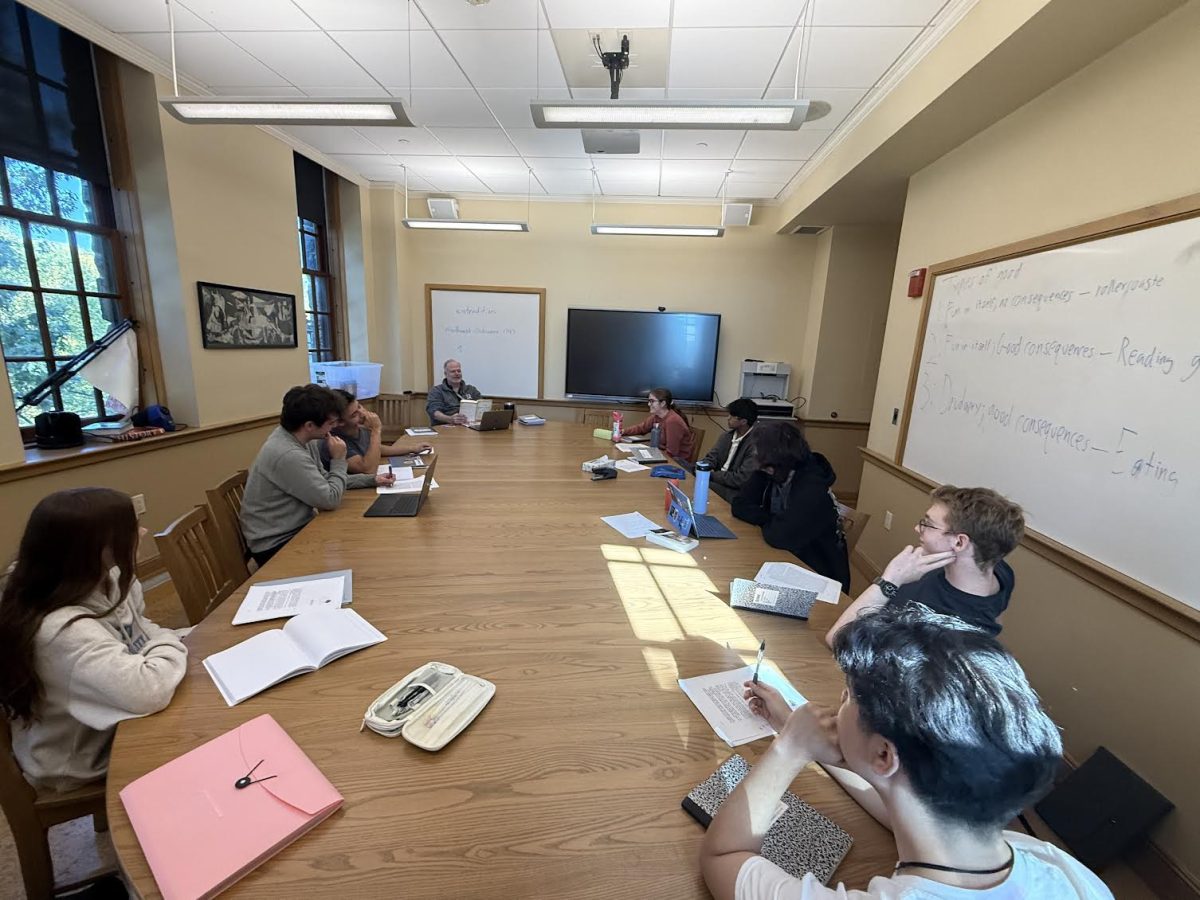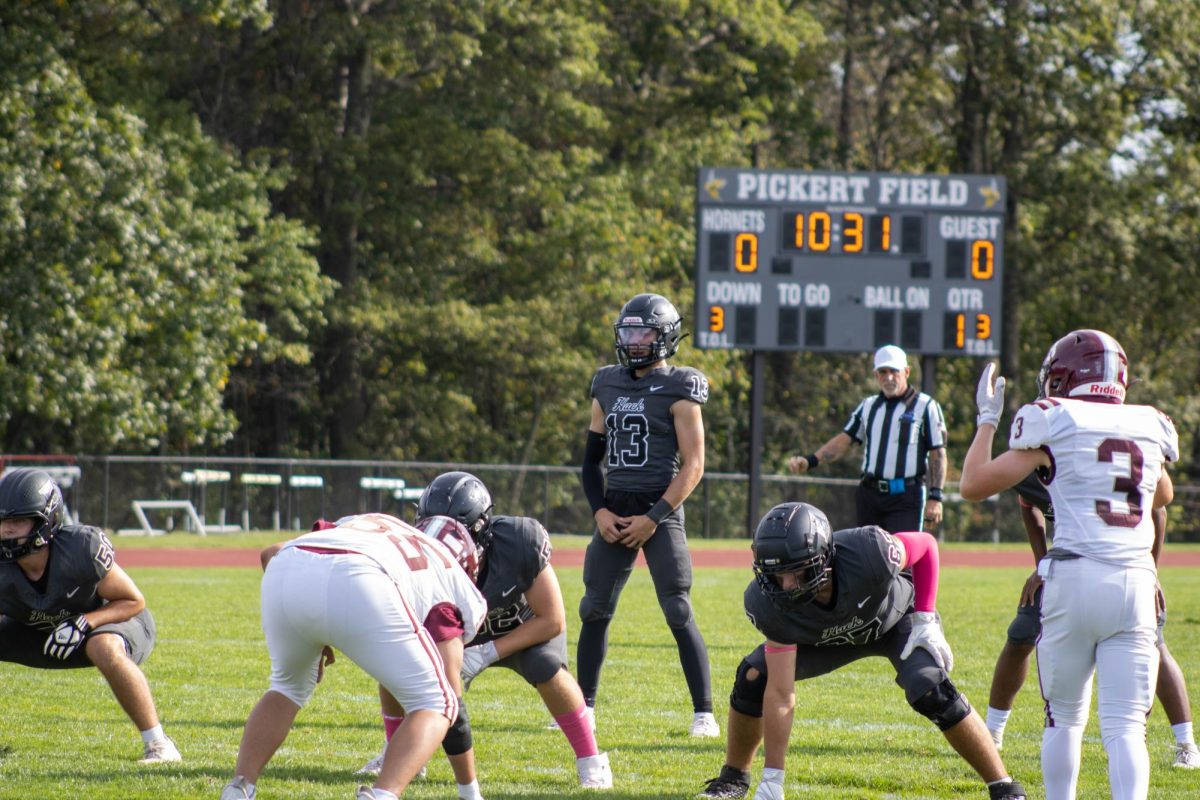Pulitzer Prize-winning historian David Blight has been fixated on every detail of Frederick Douglass’ life, none more than his prose. As one of the most well-versed scholars in American history, Blight has read the work of countless figures, but none have captivated him more than Douglass. When Blight took the podium in Diller Hall, he conveyed how powerful language is.
“Words can still change the world,” said Professor Blight. “Words are still the way we know each other. Words are still a medium of power. They’re a medium of freedom and unfreedom. They’re a medium of authoritarianism and they’re a medium of liberation. They’re a medium of compassion. They can be a medium of love and of hate. This thing called language is what makes us humans.”
David Blight is the Sterling Professor of American History at Yale University. He is most notable for his biography of Frederick Douglass, Frederick Douglass: Prophet of Freedom, which won the Pulitzer Prize for History in 2019. However, Blight had been writing and developing high-quality work long before receiving this award. In 2002, Blight’s book Race and Reunion: The Civil War in American Memory won the Bancroft Prize for exceptional works in history. The 2002 novel also won the Frederick Douglass Prize and the Merle Curti Award for Intellectual History. On top of writing his books, Blight has been published in The New York Times and The Atlantic, to name just a few.
In front of the entire Hackley Upper School, in the new Diller Hall auditorium, Professor Blight delivered a powerful speech about how Frederick Douglass’ story shows the change that language and words can create, “Words are the medium that make us human,” Blight said. “We’re the only species that can know its own history and write it and fight over it.”
After going through the key details of Douglass’ life and the historical context that surrounded him, Blight closed by analyzing the final line of Douglass’ second autobiography, where Douglass reinforces his commitment to his work. Blight left the audience with one final message regarding that line, “My voice, my pen, and my vote, that’s pretty much all any of us have,” Blight said. “You might gain great wealth, and that’s a form of power. You might not. You might not have much of a pen, because not everybody is a writer. You got a voice and vote guaranteed in the Bill of Rights.”
During lunch, Prof. Blight hosted an inquisitive roundtable discussion in the Lindsay Room for students to ask questions. It was well-attended and attracted students across grade levels who piled into the room. The roundtable was a time for those deeply interested in history to express their passion with like-minded people. A topic on the minds of most was Blight’s, and Douglass’, interpretations of whether the Constitution was a document that condemned or approved of slavery.
“I thought it was really cool during his speech to hear about the contents of his book and the broader concepts of how it relates to humanity,”said senior Meredith Lee. “The way he used Frederick Douglass’ voice and writing to connect to how we should use our vote and voice was especially interesting and powerful.”
After lunch, Blight visited multiple history classes including American Law, World History I, and U.S. History. From discussing Douglass’ favorite writers, to President-elect Trump’s pending court cases, and Marvin Gaye’s Inner City Blues, students were delighted to spend time with and learn from the acclaimed professor.
“I thought that he was super relatable with all of us,” freshman Oz Bennett said. “We would tell him about a project that we worked on in class and then he would relate it to his personal experiences and give some more context that we maybe didn’t find out. He was a really cool guy and I think his research and his time as a history teacher helped him relate to us.”
History department chair Chris Loomis, American Law teacher Micahel Bass, and Associate Head of School Cyndy Jean spearheaded securing the lecture using the funding from the Jeffrey A. Libert ‘73 Endowment. Mr. Bass’ friendship with Yale Law professor Akhil Amar helped him get in contact with Blight. During his lunch roundtable discussion, Blight reflected on what Akhil Amar told him about speaking at Hackley, “If Hackley calls you, you go,” Amar said.
The Libert Endowment provides support for projects and activities related to deepening an understanding of the intersection of race, law, and the U.S. Constitution and is part of Hackley’s overarching plan to make students informed citizens and educate students in civics. Inviting guest speakers who are experts in a particular field of history and/or law allows students to get broader perspectives and understand historical concepts at a depth that sometimes the schedule doesn’t afford the History department to reach. History teachers get to watch their curriculum expand into larger school-wide discussions and help them accomplish their goal of teaching their students more about how the past impacts present decision-making in politics.
To wrap up his day at Hackley, Blight visited with the History department to discuss pedagogy. History teacher and junior dean Melissa Stanek was an active participant in the discussion and came away with some interesting takeaways.
“I think what stuck with me the most is that he focused his writing on biographical pieces and as a department we focus more on analytical writing,” Ms. Stanek said. “I would anticipate we will look at do you always have to argue a perspective or can you just learn about someone in a deeper more meaningful way. Hearing about his discussions about his classes with his Yale colleagues made us think deeper about what we chose to teach.”
Not many Pulitzer prize-winning historians would highly prioritize speaking to high school students but they aren’t David Blight. Blight’s background as a high school social studies teacher and frequent summer institutes for secondary teachers in the National Park Service has given him a different perspective on teaching. As Blight reflected, his day on the Hilltop filled him with hope and pride in the future of the country, but maybe more important was the fun Blight had doing it.
“History really matters right now,” Blight said. “It’s [All-school assembly] engagement with 400 students and engagement with the future. I love doing it again and again, there’s no better audience and no better way to give back.”

